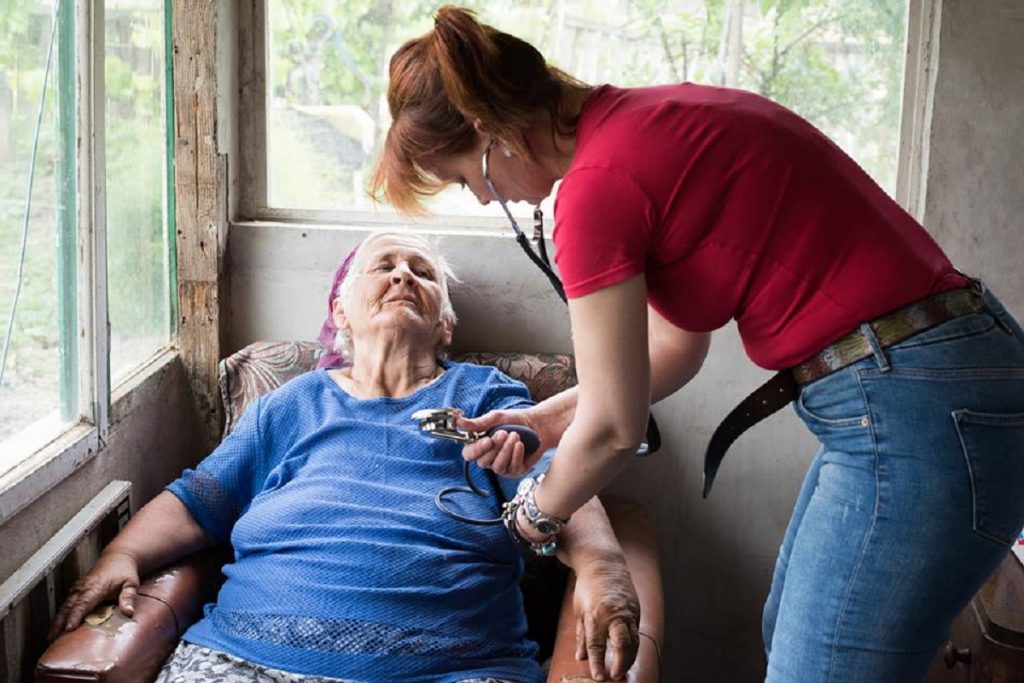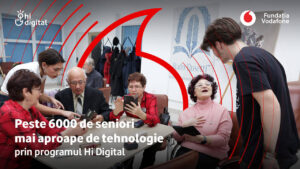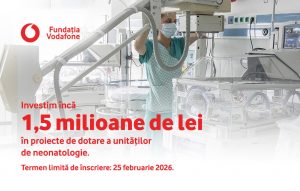Forty kilometers forth, forty kilometers back. Every day, physician Dana Paica, 46, takes a portable EKG suitcase with her together with a pack of heart medication and travels from Timisoara to Ghilad and back. The road between Timisoara and Ghilad in Timiş county, has become a sort of lifeline for the 2,000 villagers in Ghilad, who have no access to specialized medical services. Dr. Paica does not take specialist doctors with her to Ghilad, other than a cardiologist and an internal medical doctor, who join her every now and then. Instead, she uses telemedicine, a technology that allows her to send medical test results in real-time to specialist physicians, who can diagnose and prescribe treatments remotely, just like they were seeing the patient themselves.
Ghilad is a big and beautiful village, with wide streets bordered by trees and well-kept houses with red tile roofs. The village has a school, a kindergarten, a medical center, ozone-purified running water, internet and cable connection and public transportation to and from Timişoara traveling every one hour. Behind high fences there are large courtyards with flower gardens and farm animals. But many of these big houses are inhabited by elderly, who live alone. Veronica Bocşan, 58, is one of them. “My children live in Portugal, they left the country many years ago. I’ve looked after their kids, my grandchildren, for some time, but then they, too, left for Portugal, so here I am, all by myself.” She finds it difficult to travel to Timisoara to a hospital to be checked by a cardiologist, and her high blood pressure makes her feel dizzy and unable to work in the garden as much as she would like to. She used to take the medication prescribed by the family physician who, in the absence of thorough medical investigations, like an EKG, for example, prescribed her whatever he though was best for her condition, with no significant improvement of her condition, as she says.

When she met dr. Paica, shortly after the doctor had opened the diagnosis center in Ghilad, in August 2015, with funding provided by the Vodafone Romania Foundation, Veronica Bocşan used to “walk propping herself up against fences”, recounts the doctor. “Her blood pressure was 260/130, so she was at imminent risk of stoke or heart arrest”, adds the doctor. Dr. Paica used the EKG device on the woman and the patient’s heartbeat rate was sent instantly to a cardiologist at the Profilaxis Clinic in Timisoara. Things go like this: dr. Paica performs the investigation, the EKG device is connected to a high-performance modem and the data are transmitted in real time to the cardiologist and displayed on a screen, so he can check the patient’s health condition as in a face-to-face medical check-up. This is how the cardiologists and dr. Paica found that Mrs. Bocşan needed more detailed investigations. “Dana took me to Timișoara by her car and there they fitted a device on me, which measured my blood pressure around the clock”, Mrs. Bocşan recalls. “I’ve paid 100 lei for the test.” This way, the doctors could finally prescribe Mrs. Bocşan the right medication and lower her blood pressure to 130/70. Now she is happy she can do her gardening two to three hours a day.
Ghilad medical office uses telemedicine also for eye, lung and ENT disorders, as well as for many other health conditions that can be diagnosed only by specialists using dedicated equipment. For all these conditions, Dr. Paica carries in her doctor suitcase a device that can be connected via a USB to a laptop to send data about the patient’s health condition in real time. For those more than 500 people who were seen by dr. Paica last year, the doctor suitcase, packed as it is with medicines bought by the Dr. Paica and her colleagues is like a magic box that works wonders for their health.




